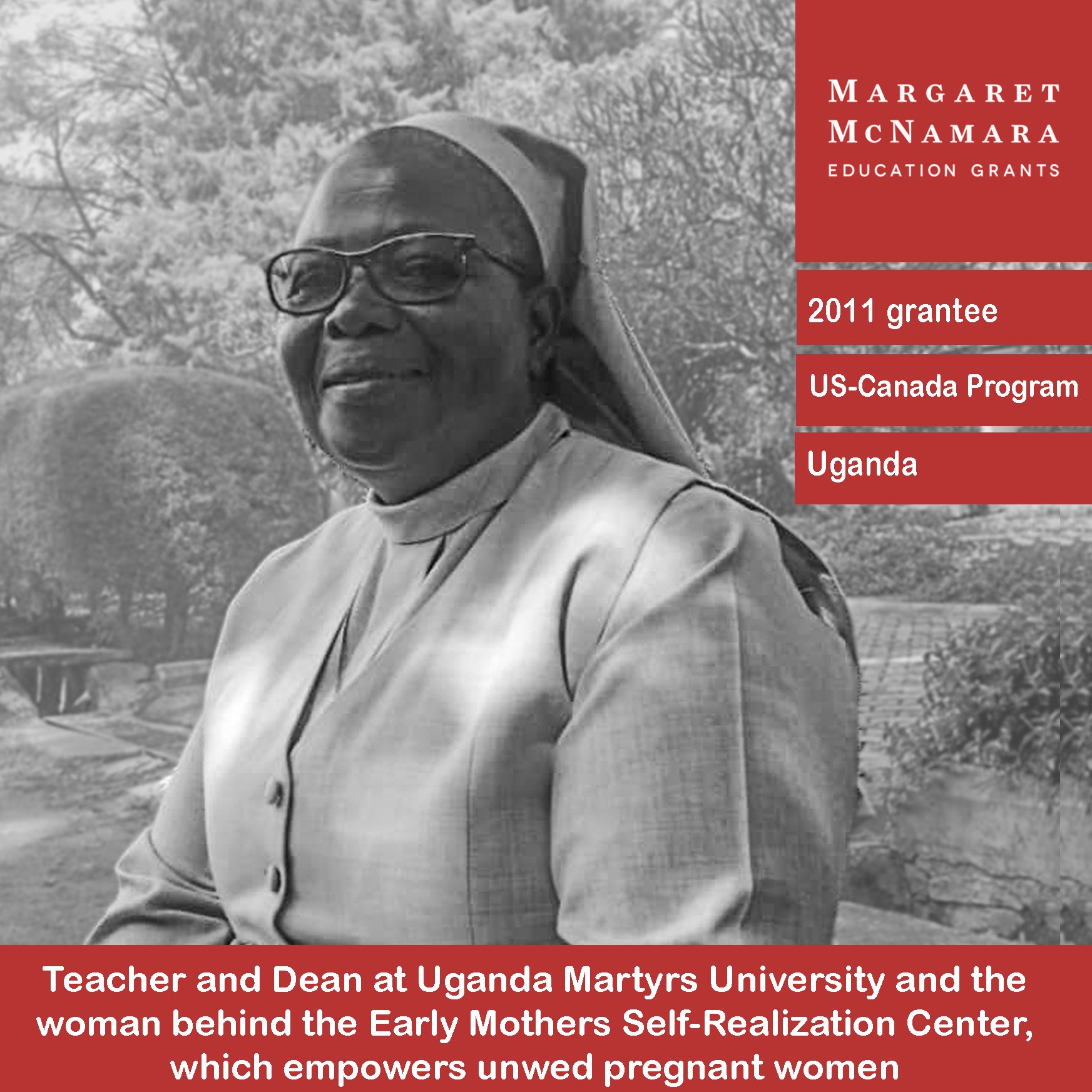Sister Elizabeth Namazzi was inspired to help ostracized unwed teenage mothers in her homeland, Uganda, after witnessing firsthand how a hopeless pregnant girl’s life was transformed with practical support. After teaching secondary school for many years, Sister Elizabeth completed a PhD in Curriculum Studies at Canada's University of British Columbia (UBC), supported by a MMEG grant in 2011, and then returned to Uganda. She is now changing the lives of young people, both at the university where she works and through a center to support and empower young mothers.
While studying in Canada, Sister Elizabeth also worked to advance her ambition to help young unwed mothers. In Uganda’s conservative society, pregnant girls are often expelled from their homes and communities and left to fend for themselves. Homeless and helpless, the girls struggle to survive and too often lose their unborn babies. Sister Elizabeth’s vision was to build a center that could offer the young women a safe place to give birth, provide them and their babies with healthcare, teach them skills that promote self-reliance, and work with their families and communities to end ostracism of pregnant girls and reintegrate unwed mothers into society.
Upon graduation, Sister Elizabeth returned to Uganda Martyrs University, southwest of Kampala, where she is now Dean of the School of Postgraduate Studies and Research. As well teaching, supervising graduate research, and conducting innovative research herself, Sister Elizabeth is responsible for the School’s administration and co-ordination. She also designed the Curriculum of Educational Administration and Management program, a recent addition to the university’s offerings.
While studying at UBC, Sister Elizabeth persuaded engineering students in nearby Seattle to design the center she was dreaming of, based on her hand-drawn sketches. The prize-winning design for the Early Mothers Self-Realization Center is now becoming a reality. The center is being constructed in Sister Elizabeth’s home town with funds raised from well-wishers near and far. (Donors can contribute via https://www.gofundme.com/uganda-mothers-shelter). As of mid-2022, the first building was 80% complete and was already accommodating the urgent needs of young mothers. Once finished, the center will house a dormitory, an education center, and a medical clinic, and the girls will receive training in parenting, childcare and nutrition, and self-reliance skills. The clinic will also provide pre- and postnatal health services.
The center is eventually expected to accommodate and train up to 100 girls a year, supported by 15 staff members. In mid-2022, 18 girls and babies were housed at the Center and 26 others had been assisted with food and clothing. The center grows some of its own food, and plans to start rearing pigs and poultry and train the girls in animal farming as a potential source of income. Girls are also taught sewing skills, on donated machines.
In her formal role as instructor and dean at Uganda Martyrs University, Sister Elizabeth saw student enrollment grow by 25% since her return in 2015 to 6,189 students in 2019. Sadly, the COVID pandemic has since caused enrollment to drop to 4,632 students, of which some 45% are women. Her own research has focused on child-led households and children’s perspectives on HIV/AIDS.
MMEG’s investment in Sister Elizabeth is having an exponential impact as she supports and empowers young unwed women while working to change community biases against them, researches a range of child-focused issues, and trains future educators.











